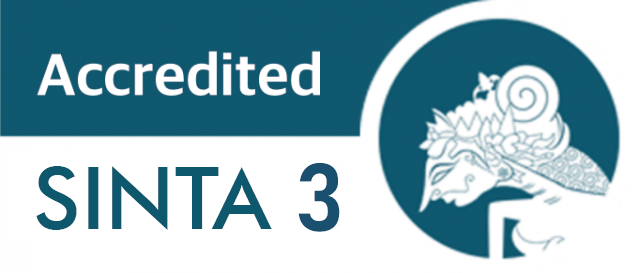Publication Ethics
PUBLICATION ETHICS & MALPRACTICE STATEMENT
Unnes Law Journal is a double blind peer-reviewed journal committed to uphold the highest standards of publication ethics. In order to provide our readers with a journal of highest quality, we state the following principles of Publication Ethics and Malpractice Statement based on Committe of Publication Ethics (COPE) standard. All articles not in accordance with these standards will be removed from the publication at any time even after the publication. In accordance with the code of conduct we will report any cases of suspected plagiarism or duplicate publishing to the relevant authorities. The Journal reserves the right to use plagiarism-detecting software to screen submitted papers at all times.
Ethical Guidelines for Journal Publication
The publication of an article in the peer-reviewed journals conducted by the Unnes Law Journal is one of the important aspects in the development of a coherent and respected network of knowledge. A publication is a reflection of the quality of the work of the authors together with the institutions which support them. Therefore, to provide the readers with a high quality journal, the Unnes Law Journal provides principles of Publication Ethics and Malpractice Statement. It is hoped that all parties involving in this journal such as the authors, the journal editors, the peer reviewers, the publisher and the association or sponsored journals, meet the standard provided by the Unnes Law Journal . Articles that are not in line with the standards will be removed from the publication at anytime.
In addition, we, the Unnes Law Journal and Faculty of Law Universitas Negeri Semarang, play a role to monitor over all stages in the publication process and we realize our ethical and responsibilities. We assure that all stages in the publication process such as advertising, reprint or other commercial revenue do not impact or influence the editorial decisions. Moreover, the Editorial Board will assist the communication between the journals with other parties such as other journals and/or publishers if it is needed by the editors.
In relation to the Ethics and Malpractice Statement, the Unnes Law Journal formulates the following standard:
DUTIES OF AUTHORS
- The authors need to assure that the article is original.
- The authors need to assure that all citations in the manuscript have been cited/credited/referenced properly.
- The authors need to assure that the manuscript has not been published elsewhere.
- The authors need to be responsible to check and edit the language used in the manuscript before being submitted.
- The authors need to report any errors found in the manuscript to the Unnes Law Journal.
- The authors need to agree to sign the agreement before submitting the article.
- The authors need to submit the articles by using online submission procedure.
DUTIES OF EDITORIAL BOARDS
- The editorial board needs to assure a fair peer-review of the submitted articles.
- The editorial board needs to disclose any (potential) conflicts of interest.
- The editorial board needs to assure the confidentiality of any information in the manuscript before the publication.
- The editorial board needs to evaluate and supervise the result of the reviewed manuscript.
- The Editor-in-Chief will supervise and coordinate all editors involved in the process of publication.
DUTIES OF REVIEWERS
- The reviewers will evaluate manuscripts based on the content without considering genders, sexual preference, religious belief, citizenship, ethnic and origin, or political philosophy of the authors.
- The reviewers need to assure the confidentiality of the information in the manuscript.
- The reviewers need to report to the Editor-in-Chief if they find any violation in the manuscript.
- The reviewers need to evaluate the manuscripts as objective as possible and the results of the review present their opinion on the works.
- The reviewers who feel unqualified to review the research reported in a manuscript or knows that its prompt review will be impossible should notify the Editor-in-Chief and excuse himself from the review process.
ARTICLE PROCESSING CHARGES
The Unnes Law Journal welcomes anyone who wants submit articles and the Unnes Law Journal does not require any article processing charges and article publication fee. To access article for libraries/individual purposes, no fee will be charged for subcription. To subscribe the printed version, please contact us.








